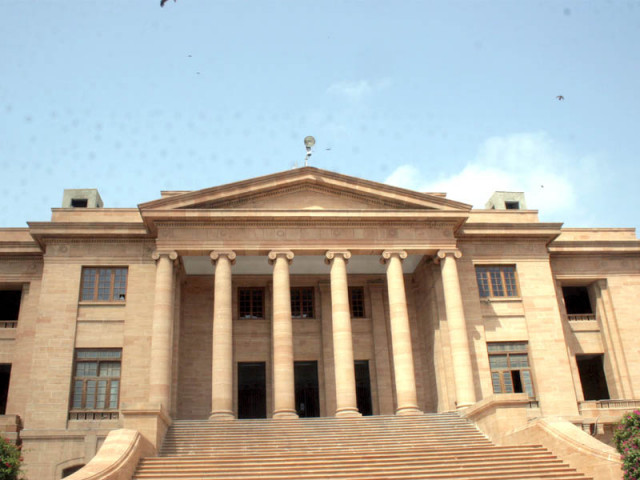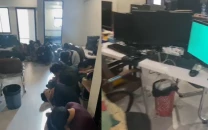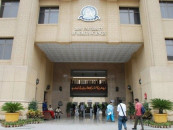SHC bars district administration from litigating between landlord peasants
Prohibits 'tenancy tribunals, strikes down Section 6 of Sindh Tenancy (Amendment) Act 2013

SIndh High Court : PHOTO: EXPRESS
The judgment was given in a petition filed by a peasant, Ghulam Ali Laghari. The case was pleaded by advocates Ali Palh and Sattar Sarki for the petitioner. Revenue officials are often regarded as partisan while dealing with cases concerning peasants and landlords, mostly in favour of the latter. The pendency also exists due to executive workload on district administration officials.
"After the separation of the judiciary from the executive, the assistant commissioner, the additional commissioner and the commissioner, don't have jurisdiction to make judicial determination under Sections 27, 29 and 30 of the Act and to that extent the said provisions are ultra vires of Articles 175, 202 and 203 of the Constitution of Pakistan 1973," observed the bench.
They pointed out that the assistant commissioner does not have magisterial powers but the Act authorised them to hear and determine disputes between the landlords and the peasants. They further stated that the legal and binding position of the law allows the judiciary to declare Section 27 of the Act as ultra vires of Article 175 of the Constitution.
"The executives including the assistant commissioner can't act as the 'tenancy tribunal' nor can they deal with appeal, revision, etc." While transferring the existing petitions before the assistant commissioners to district courts, which will refer the cases to the civil judge and judicial magistrates, the SHC gave a month to the Sindh Assembly to amend the Act. "...subject to satisfaction of true spirit of Article 175 of the Constitution." The court further ordered that the appeals and revisions pending under Sections 29 and 30 of the Act should also be decided by the relevant district judge or additional district judge.
Free labour
The SHC also struck down Section 6 of the Sindh Tenancy (Amendment) Act 2013. The amended law had omitted the prohibition of free labour by doing away with Section 24 C of the 1950 Act. "Under the amendment, zamindar [landlord] has been allowed to take begaar [free labour from peasants] that is completely against humanity." argued advocate Palh at the last hearing of the petition on July 30.
Advocate Jawad Ali Sahar, who was appointed amicus curiae by the bench, pointed out that in a 2009 Supreme Court order, free labour taken by landlords from peasants has already been declared unlawful. "...it has become unavoidable to show how legislatures have been unjust towards the haris [peasants] and even went on to include such amendments which are even against Article 8 of the Constitution," the SHC noted.
To corroborate the assertion, the bench referred to the original 1950 Act which stated that landlords should not take free labour from peasants or their family members. The bench observed that removal of that clause in the 2013 amendment amounted to giving a 'licence' to landlords to exact free labour from peasants and their families. The SHC's judgment stated that the 2013 amendment concerning free labour contravened Article 8 of the Constitution.
"... the binding directives of the honourable apex court have entirely been ignored while making the amendment in Section 24 (c) of the ACT," the order reads. "... hence section 24(c) of the Act is to be read as it was before such [2013] amendment."
The judgment further ordered the government to eliminate discrimination towards peasants; assure restrain on sudden eviction and compensations thereof; assure education of peasant's children and access to healthcare for their families and assure a sense of protection for their women and children. The SHC also directed the government to provide compulsory life insurance to the peasants and their family members as well as social security as provided by the state.
Published in The Express Tribune, October 3rd, 2019.


















COMMENTS
Comments are moderated and generally will be posted if they are on-topic and not abusive.
For more information, please see our Comments FAQ